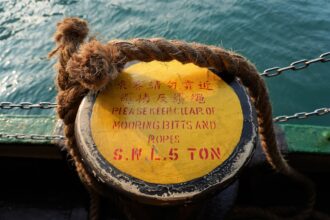Operation Mockingbird emerged in the aftermath of World War II, during a period when the United States was grappling with the realities of the Cold War. The CIA, recognizing the power of media as a tool for shaping public perception and opinion, sought to harness this influence to counteract the spread of communism. The operation was not a singular event but rather a series of initiatives aimed at infiltrating and manipulating media outlets both domestically and internationally.
The agency’s leaders understood that controlling the narrative was essential in a world where information could sway public sentiment and alter political landscapes. The origins of Operation Mockingbird can be traced back to the broader context of intelligence operations that began in the late 1940s. As the Cold War intensified, the CIA established various programs to combat Soviet propaganda and promote American ideals.
This led to the recruitment of journalists, editors, and media executives who could be persuaded to disseminate information favorable to U.S. interests. The operation was characterized by a blend of covert funding, psychological warfare, and strategic partnerships with influential media figures, laying the groundwork for a complex relationship between government agencies and the press.
Key Takeaways
- Operation Mockingbird was a covert CIA program aimed at influencing media and journalism during the Cold War era.
- The CIA’s involvement in media included recruiting journalists, planting stories, and manipulating public opinion through propaganda and disinformation.
- Journalists and organizations compromised by Operation Mockingbird included prominent media outlets and influential reporters who were willing to cooperate with the CIA.
- The impact of Operation Mockingbird on public opinion was significant, as it shaped the narrative on key issues and influenced foreign policy decisions.
- The legacy of Operation Mockingbird continues to spark debate and controversy, raising questions about media integrity and the need for transparency in journalism.
The CIA’s Covert Involvement in Media
The CIA’s covert involvement in media was multifaceted, encompassing a range of tactics designed to influence public discourse. One of the primary methods employed was the financial support of various media outlets, which allowed the agency to exert control over editorial content. By providing funding to newspapers, magazines, and broadcasting companies, the CIA could ensure that certain narratives were promoted while others were suppressed.
In addition to financial support, the CIA also engaged in direct manipulation of news stories. This included planting false information, creating fake news articles, and even orchestrating entire campaigns to shape public perception.
The agency’s operatives would often provide journalists with carefully crafted narratives that aligned with U.S. foreign policy objectives. This practice blurred the lines between journalism and propaganda, raising ethical questions about the integrity of the media and its role as a watchdog in society.
As a result, many journalists became unwitting participants in a larger scheme that prioritized national security over journalistic integrity.
Journalists and Organizations Compromised by Operation Mockingbird

Operation Mockingbird’s reach extended to numerous journalists and organizations, many of whom were unaware of their involvement in a covert government operation. Prominent figures in journalism were recruited or influenced by the CIA, often under the guise of patriotism or national interest. Some journalists accepted payments for writing articles that aligned with CIA objectives, while others were simply manipulated into reporting stories that served the agency’s agenda.
This created a culture of complicity within the media, where ethical boundaries were often crossed in pursuit of perceived greater goods. Several well-known organizations were also implicated in Operation Mockingbird, including major newspapers and broadcasting networks. The CIA’s influence extended to institutions that were once considered bastions of journalistic integrity.
The agency’s ability to infiltrate these organizations raised significant concerns about the independence of the press and its role as a check on government power. As journalists became entangled in this web of influence, the line between objective reporting and state-sponsored propaganda became increasingly blurred, leading to a crisis of credibility that still resonates today.
The Impact of Operation Mockingbird on Public Opinion
| Metrics | Data |
|---|---|
| Number of media organizations involved in Operation Mockingbird | More than 25 |
| Duration of Operation Mockingbird | 1950s to 1970s |
| Impact on public opinion | Shaping and influencing public perception and attitudes |
| Revelation of Operation Mockingbird | Church Committee hearings in 1975 |
The impact of Operation Mockingbird on public opinion was profound and far-reaching. By controlling narratives and shaping media coverage, the CIA was able to influence how Americans perceived both domestic and international events. This manipulation of information created a skewed understanding of critical issues, fostering an environment where misinformation could thrive.
As a result, public opinion was often swayed by carefully curated narratives rather than objective reporting, leading to a misinformed citizenry. Moreover, Operation Mockingbird contributed to a growing distrust in media institutions. As revelations about government manipulation emerged over time, many individuals began to question the credibility of news sources they once relied upon.
This erosion of trust had lasting implications for journalism as a whole, as audiences became increasingly skeptical of media narratives. The consequences were not limited to public opinion; they also affected political discourse and civic engagement, as citizens struggled to discern fact from fiction in an era marked by disinformation.
The Role of Propaganda and Disinformation
Propaganda played a central role in Operation Mockingbird’s strategy to influence public perception. The CIA recognized that information could be weaponized to achieve specific political goals, leading to the creation of narratives that painted the United States in a favorable light while demonizing adversaries. This approach involved not only promoting positive stories about American policies but also disseminating disinformation about rival nations and ideologies.
By controlling the flow of information, the agency sought to create an environment where its actions were justified in the eyes of both domestic and international audiences. Disinformation tactics employed during Operation Mockingbird included fabricating stories, manipulating facts, and selectively presenting information to create misleading impressions. These strategies were not limited to traditional media; they also extended to cultural institutions such as film and literature, where narratives could be crafted to align with U.
interests. The pervasive nature of propaganda during this period raised ethical questions about the role of media in society and its responsibility to provide accurate information rather than serving as a mouthpiece for government agendas.
Operation Mockingbird’s Influence on Foreign Policy

Operation Mockingbird had significant implications for U.S. foreign policy, as it shaped how American actions were perceived both at home and abroad. By controlling narratives surrounding foreign interventions and military actions, the CIA sought to garner public support for policies that might otherwise face opposition.
This manipulation of information allowed policymakers to pursue aggressive strategies under the guise of protecting national interests while masking potential consequences or dissenting viewpoints. The operation also influenced international relations by framing foreign adversaries in negative terms. By portraying rival nations as threats to democracy and freedom, the CIA was able to justify interventions that aligned with U.S.
strategic objectives. This approach not only affected public opinion but also shaped diplomatic relations, as countries reacted to narratives crafted by American media outlets. The long-term consequences of this manipulation are still felt today, as historical grievances stemming from U.S.
foreign policy decisions continue to impact global relations.
The Fallout and Repercussions of Operation Mockingbird
The fallout from Operation Mockingbird was significant, leading to widespread criticism of both the CIA and the media institutions involved. As details about the operation began to surface in subsequent decades, public outrage grew over the extent to which journalists had been compromised by government interests. This revelation sparked debates about media ethics and accountability, prompting calls for greater transparency within both journalism and intelligence agencies.
The repercussions extended beyond public sentiment; they also influenced legislative actions aimed at curbing government overreach into media affairs. Investigations into Operation Mockingbird led to increased scrutiny of intelligence operations and their relationship with the press. As a result, reforms were proposed to protect journalistic integrity and ensure that media outlets remained independent from government influence.
However, despite these efforts, concerns about propaganda and disinformation continue to linger in contemporary discourse.
Whistleblowers and Exposing Operation Mockingbird
Whistleblowers played a crucial role in exposing Operation Mockingbird and shedding light on its implications for journalism and democracy. Individuals within intelligence agencies who recognized the ethical dilemmas posed by such operations began to come forward with information about covert activities aimed at manipulating public perception through media channels. Their revelations sparked critical conversations about accountability within government institutions and highlighted the need for transparency in intelligence operations.
These whistleblowers faced significant risks in their pursuit of truth, often encountering backlash from their peers or facing legal repercussions for their disclosures. Nevertheless, their courage contributed to a growing awareness among the public regarding the intersection of government power and media integrity. By bringing attention to Operation Mockingbird, these individuals helped catalyze discussions about ethical journalism and the importance of maintaining an independent press free from external influences.
The Legacy of Operation Mockingbird
The legacy of Operation Mockingbird is complex and multifaceted, leaving an indelible mark on both journalism and public trust in media institutions. While it served as a cautionary tale about government overreach into media affairs, it also highlighted the vulnerabilities inherent in journalistic practices when faced with external pressures. The operation underscored the importance of maintaining ethical standards within journalism while emphasizing the need for vigilance against disinformation campaigns.
In contemporary society, echoes of Operation Mockingbird can be seen in ongoing debates about media bias, propaganda, and misinformation. As technology has evolved, so too have methods for disseminating information—raising new challenges for journalists striving to uphold integrity amidst competing narratives. The lessons learned from Operation Mockingbird continue to resonate today as society grapples with issues surrounding trust in media and accountability within both journalism and government.
The Continued Debate and Controversy Surrounding Operation Mockingbird
The debate surrounding Operation Mockingbird remains contentious as scholars, journalists, and policymakers grapple with its implications for contemporary media practices. Some argue that while certain aspects of government involvement in media are necessary for national security purposes, others contend that such actions undermine democratic principles by eroding trust between citizens and their institutions. This ongoing discourse reflects broader concerns about transparency, accountability, and ethical standards within journalism.
Moreover, as new technologies emerge—such as social media platforms—questions arise regarding how disinformation campaigns can be executed on an even larger scale than during the era of Operation Mockingbird. The lessons learned from this historical episode serve as a reminder that vigilance is essential in safeguarding against manipulation while promoting an informed citizenry capable of discerning fact from fiction.
Lessons Learned and the Future of Media Integrity
The lessons learned from Operation Mockingbird are critical for shaping the future of media integrity in an increasingly complex information landscape. As society continues to navigate challenges posed by misinformation and propaganda, it becomes imperative for journalists to uphold ethical standards while remaining vigilant against external influences that may compromise their work. Transparency within both journalism and government is essential for rebuilding trust among audiences who have become disillusioned by past abuses.
Furthermore, fostering media literacy among citizens is crucial for empowering individuals to critically evaluate information sources and discern credible reporting from disinformation campaigns. By prioritizing education around media consumption practices, society can cultivate an informed populace capable of engaging thoughtfully with news narratives while holding institutions accountable for their actions. In conclusion, Operation Mockingbird serves as both a historical case study and a cautionary tale about the intricate relationship between government power and media integrity.
Its legacy continues to shape discussions surrounding ethics in journalism while highlighting the importance of transparency in safeguarding democratic principles against manipulation through disinformation campaigns.
In exploring the depths of covert operations and media manipulation, the article “Uncovering Operation Mockingbird” sheds light on the CIA’s alleged influence over major news outlets during the Cold War. For those interested in delving deeper into the intricate web of espionage and media control, a related article can be found on In The War Room. This resource provides further insights into the historical context and implications of such clandestine activities, offering a broader understanding of how intelligence agencies have historically interacted with the media to shape public perception.
CHECK THIS OUT! 📽️🎞️ Hollywood’s Secret War: How the CIA Rewrote Movies
FAQs
What is Operation Mockingbird?
Operation Mockingbird was a secret campaign by the United States Central Intelligence Agency (CIA) to influence media organizations and journalists to promote certain narratives and agendas.
When did Operation Mockingbird take place?
Operation Mockingbird is believed to have started in the early 1950s and continued through the 1970s, although some speculate that its influence may have extended beyond that time frame.
What were the goals of Operation Mockingbird?
The primary goal of Operation Mockingbird was to manipulate the media to disseminate propaganda and shape public opinion in favor of the CIA’s interests, both domestically and internationally.
How did Operation Mockingbird influence the media?
The CIA used various tactics to influence the media, including recruiting journalists as CIA assets, placing agents within news organizations, and providing journalists with information and stories that aligned with the CIA’s agenda.
Was Operation Mockingbird officially acknowledged by the CIA?
The CIA has never officially acknowledged the existence of Operation Mockingbird, but declassified documents and testimonies from former CIA officials have provided evidence of its existence.
What impact did Operation Mockingbird have on the media and public perception?
Operation Mockingbird is believed to have had a significant impact on shaping media narratives and public perception of certain events, particularly during the Cold War era and other sensitive geopolitical moments.
Has there been any response or accountability for Operation Mockingbird?
There has been public scrutiny and criticism of Operation Mockingbird, but there has been no official accountability or consequences for the CIA’s manipulation of the media during that time.




